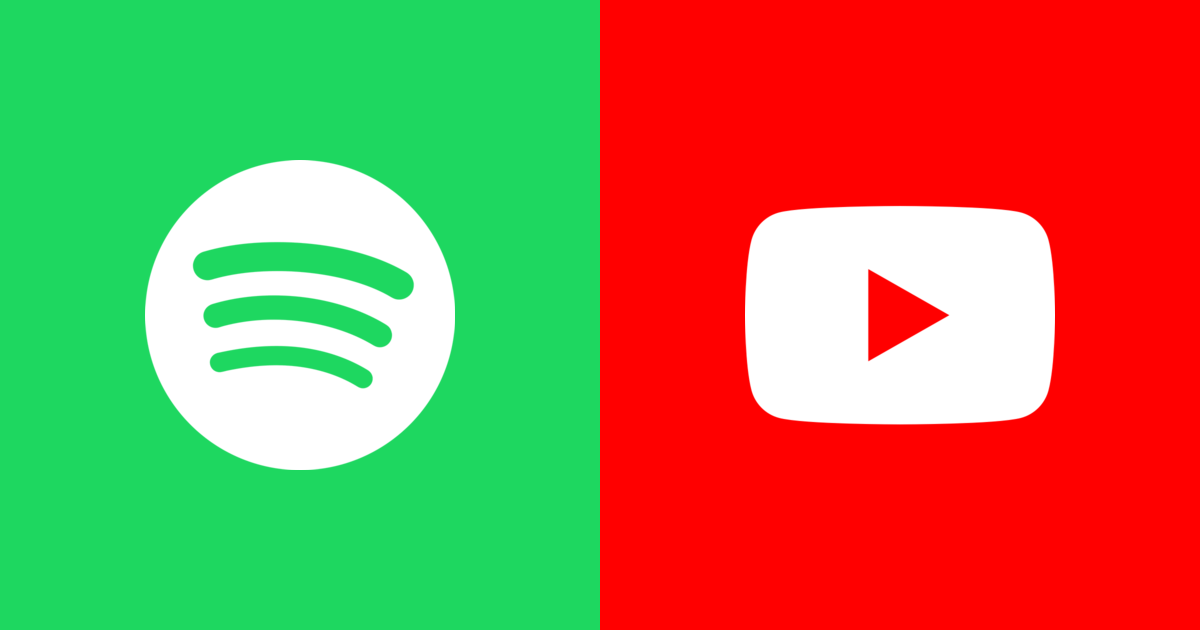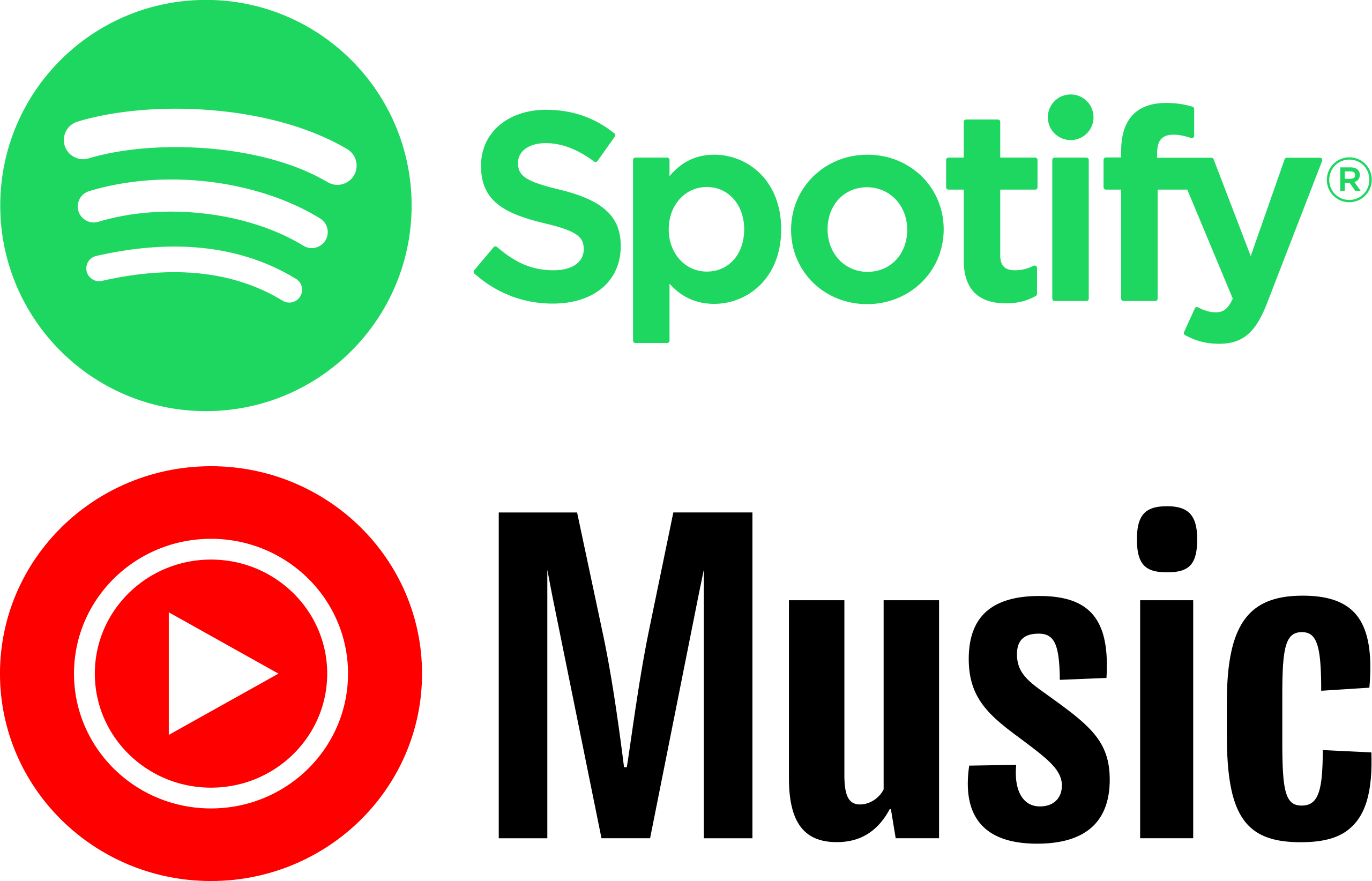
Spotify Vs YouTube Music: Which Streaming Service Reigns Supreme?
Spotify offers superior playlist curation, while YouTube Music excels in its vast music video library. Both platforms have unique strengths.
Spotify and YouTube Music are two of the most popular music streaming services available today. Spotify is known for its advanced playlist algorithms, personalized recommendations, and extensive podcast library. YouTube Music, on the other hand, boasts a massive collection of music videos and user-generated content, making it a favorite for visual music experiences.
Choosing between the two often depends on user preferences for playlists or music videos. Both services offer free and premium versions, catering to different needs and budgets. Understanding their unique features can help users decide which platform best suits their listening habits.

User Interface
The user interface is a crucial aspect of any music streaming service. It affects how easily users can navigate and enjoy their music. Both Spotify and YouTube Music offer unique interfaces with their strengths and weaknesses. Let’s dive into the details to see which one stands out.
Ease Of Navigation
Spotify has a clean and intuitive layout. The main screen displays your recently played tracks and playlists. The navigation bar at the bottom includes key sections like Home, Search, and Your Library.
YouTube Music also offers a straightforward interface. The home screen shows recommendations based on your listening history. The bottom navigation bar features Home, Explore, and Library sections for easy access.
| Feature | Spotify | YouTube Music |
|---|---|---|
| Home Screen | Recently played, playlists, and recommendations | Recommendations based on history |
| Navigation Bar | Home, Search, Your Library | Home, Explore, Library |
Customizable Features
Spotify allows users to create and organize their playlists easily. You can customize your library with folders and sort options. The dark mode is a favorite for night-time listening.
YouTube Music offers playlist creation and customization. Users can also switch between audio and video modes seamlessly. The interface allows for easy toggling between music and video content.
- Spotify: Playlist organization, dark mode.
- YouTube Music: Audio-video toggle, playlist customization.
Both platforms provide various ways to personalize your music experience. Your choice depends on what features you value most.
Music Library
Choosing between Spotify and YouTube Music can be tough. Both have vast music libraries. Let’s dive into the details and see how they compare.
Catalog Size
The size of a music library matters a lot. Spotify boasts over 70 million tracks. This includes songs from various genres and eras. On the other hand, YouTube Music offers a slightly larger library with more than 80 million tracks.
| Platform | Number of Tracks |
|---|---|
| Spotify | 70 million+ |
| YouTube Music | 80 million+ |
Both platforms have a rich collection. Yet, YouTube Music edges out Spotify in sheer number.
Exclusive Releases
Exclusive content can be a game-changer. Spotify often features exclusive albums and singles. Famous artists like Taylor Swift and Drake have released exclusive content on Spotify.
Meanwhile, YouTube Music leverages its video platform. It offers exclusive music videos and concert recordings. You can find content from top artists, often not available elsewhere.
- Spotify: Exclusive albums and singles
- YouTube Music: Exclusive music videos and concert recordings
Both platforms provide unique content. Your choice depends on what exclusives you prefer.
Sound Quality
Sound quality is a critical factor for music lovers. Both Spotify and YouTube Music offer unique features. Let’s dive into the details to understand their sound quality better.
Audio Formats
Spotify and YouTube Music support different audio formats. Spotify uses the Ogg Vorbis format, known for its efficient compression and good sound quality. YouTube Music, on the other hand, uses the AAC format, which provides excellent audio fidelity.
Here’s a comparison table for clarity:
| Service | Audio Format |
|---|---|
| Spotify | Ogg Vorbis |
| YouTube Music | AAC |
Streaming Quality
Streaming quality is another important aspect. Spotify offers different bitrates for different plans. Free users get a maximum of 160 kbps, while Premium users enjoy 320 kbps.
YouTube Music also provides variable streaming quality. Free users get up to 128 kbps. Premium users can stream at 256 kbps.
Here’s a detailed look:
| Service | Free Plan | Premium Plan |
|---|---|---|
| Spotify | 160 kbps | 320 kbps |
| YouTube Music | 128 kbps | 256 kbps |
For audiophiles, streaming quality matters. Spotify’s 320 kbps offers better sound than YouTube Music’s 256 kbps.
Pricing Plans
Choosing the right music streaming service often depends on pricing plans. Spotify and YouTube Music offer various subscription options. Let’s break down the pricing plans for both platforms.
Subscription Tiers
Spotify and YouTube Music provide several subscription tiers. Each tier has its own benefits and costs.
| Plan | Spotify | YouTube Music |
|---|---|---|
| Free | Yes, with ads | Yes, with ads |
| Individual | $9.99/month | $9.99/month |
| Duo | $12.99/month | N/A |
| Family | $14.99/month | $14.99/month |
| Student | $4.99/month | $4.99/month |
Both platforms offer a free tier with ads. The Individual plan costs $9.99 per month. Spotify also offers a Duo plan for two people.
Family And Student Discounts
Both Spotify and YouTube Music have Family plans. These plans allow multiple users to share one account.
- Spotify Family Plan: $14.99/month for up to 6 accounts.
- YouTube Music Family Plan: $14.99/month for up to 6 accounts.
Students can enjoy special discounts on both platforms.
- Spotify Student Plan: $4.99/month
- YouTube Music Student Plan: $4.99/month
These discounts make premium services affordable for students.
Personalization
Personalization is key in music streaming. Users love tailored experiences. Spotify and YouTube Music excel in this area. Let’s dive into their personalization features.
Algorithm Accuracy
Spotify’s algorithm is highly praised. It learns your music taste quickly. It uses advanced data analysis. It tracks your listening habits. It suggests songs you might like. It keeps your playlists fresh and relevant.
YouTube Music’s algorithm is also commendable. It leverages YouTube’s vast data. It understands your preferences well. It suggests music videos and songs. It tailors recommendations based on your history. It keeps content personalized and engaging.
Curated Playlists
Spotify offers curated playlists like Discover Weekly. It updates every Monday. It introduces you to new music. It also has Daily Mixes. These are tailored to your taste. Spotify’s curated playlists are diverse and engaging.
YouTube Music provides curated playlists too. It has a “Your Mix” playlist. This is updated regularly. It includes songs you love. It also features new recommendations. YouTube Music’s curated playlists are dynamic and personalized.
| Feature | Spotify | YouTube Music |
|---|---|---|
| Algorithm Accuracy | Highly accurate | Commendable |
| Curated Playlists | Diverse and engaging | Dynamic and personalized |
Both platforms excel in personalization. Spotify and YouTube Music use powerful algorithms. They provide curated playlists. They ensure a tailored listening experience.

Additional Features
Spotify and YouTube Music both offer exciting additional features that enhance the user experience. These features make each platform unique and cater to various user needs. Let’s dive into some of these features in detail.
Offline Listening
Spotify allows users to download up to 10,000 songs per device. You can download songs on up to five devices. This feature is available on premium plans. Downloaded songs can be played without an internet connection.
YouTube Music also offers offline listening. Users can download individual songs, albums, and playlists. There is also an Offline Mixtape feature. This automatically downloads music based on your listening habits. Offline listening is available only for premium users.
Podcast Availability
Spotify includes a vast library of podcasts. You can find podcasts of various genres. There are exclusive podcasts available only on Spotify. Users can download podcast episodes for offline listening. Podcast recommendations are based on your listening history.
YouTube Music does not natively support podcasts. Users might find podcast episodes in video format. For a better podcast experience, YouTube redirects users to the main YouTube platform.
User Experience
The user experience is a crucial factor when choosing a music streaming service. Spotify and YouTube Music each offer unique features and interfaces. This section explores their usability, cross-platform compatibility, and customer support.
Cross-platform Compatibility
Spotify is known for its extensive cross-platform compatibility. It works on various devices such as:
- Smartphones (iOS and Android)
- Tablets
- Desktops (Windows and Mac)
- Smart TVs
- Gaming Consoles
- Smart Speakers
YouTube Music also offers great cross-platform compatibility. It supports:
- Smartphones (iOS and Android)
- Tablets
- Desktops (Windows and Mac)
- Smart TVs
- Gaming Consoles
- Smart Speakers
Customer Support
Spotify provides various customer support options. Users can access:
- Help Center with FAQs
- Community Forums
- Email Support
- Social Media Support
YouTube Music offers robust customer support. Users can use:
- Help Center with FAQs
- Community Forums
- Email Support
- Social Media Support
Here is a comparison table for quick reference:
| Feature | Spotify | YouTube Music |
|---|---|---|
| Smartphones | iOS, Android | iOS, Android |
| Tablets | Yes | Yes |
| Desktops | Windows, Mac | Windows, Mac |
| Smart TVs | Yes | Yes |
| Gaming Consoles | Yes | Yes |
| Smart Speakers | Yes | Yes |
| Help Center | Yes | Yes |
| Community Forums | Yes | Yes |
| Email Support | Yes | Yes |
| Social Media Support | Yes | Yes |

Frequently Asked Questions
Which One Is Better, Spotify Or Youtube Music?
Spotify offers better playlist curation and podcast options. YouTube Music excels in video content and integration with YouTube. Choose based on your preference.
Why Do People Use Spotify Instead Of Youtube?
People use Spotify for its personalized playlists, ad-free experience, offline listening, and better music discovery features.
Does Spotify Pay More Than Youtube Music?
Spotify generally pays more per stream compared to YouTube Music. However, payment rates can vary based on multiple factors.
Does Youtube Music Take Up More Data Than Spotify?
Yes, YouTube Music generally uses more data than Spotify. This is due to video streaming on YouTube Music.
Conclusion
Choosing between Spotify and YouTube Music depends on your preferences. Both offer unique features and extensive music libraries. Spotify excels in playlist curation and discovery. YouTube Music stands out with video content and integration. Explore both platforms to find the best fit for your listening habits and needs.
